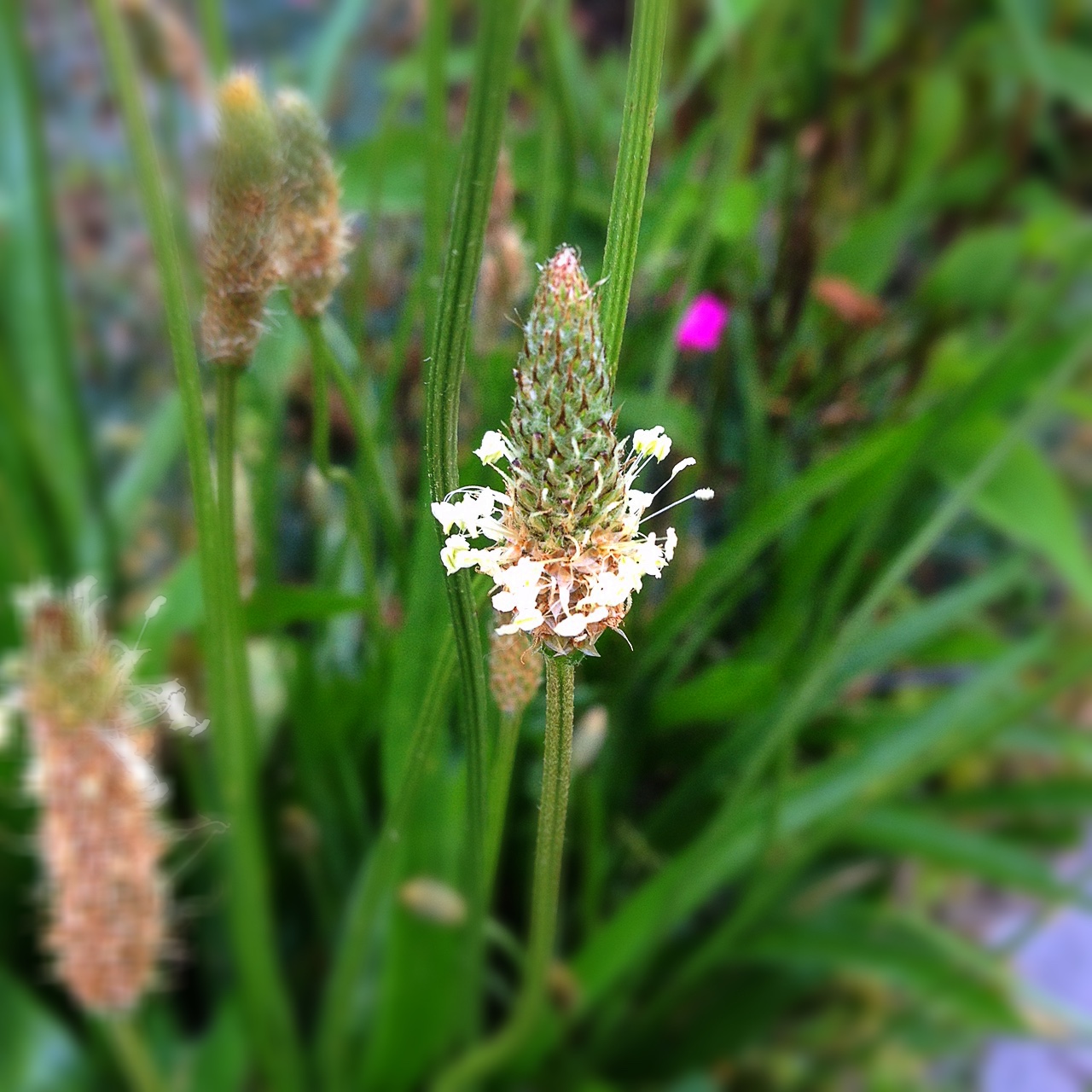I have a United Plant Savers poster next to my desk that says “If you listen, they will teach you.” Yet I can’t really pinpoint the moment when my relationship with plants changed...when I stopped actively listening to them and in turn stopped learning. What I do know is that I have been frustrated and burned out on my herbal journey for quite some time, which if you make a living as a teaching herbalist, is not a comfortable realization.
Hanging on the wall in my office, signed by Rosemary Gladstar.
Burnout for me is simply the fact that I’m having a hard time teaching students because I can’t trust that what I’m teaching is ‘true’. My students want what I cannot provide, which is definitive absolutes about herbs. And I have found myself in the predicament that I am lacking personal experience to backup the ‘facts’ that I read in books and listen to in lectures. Yet continuing my education through books and lectures has left me feeling less creative and more disillusioned.
I’ve been so frustrated, angry even, by the bombardment of workshops, intensives, and conferences that have exploded over the last couple of years. Don’t get me wrong. I like learning. Before the advent of online education, I would travel within a 7 hour radius of Columbus to attend herb conferences, workshops, and to sit with Matthew Wood, Phyllis Light, Jim McDonald, and the like for weekend intensives. There are still a lot of herbalists that I would love to learn from. But honestly I’m done. It took me nine years to finish a correspondence course that I thought would take me two years max. And part of the reason I paid for that course is because when I was in herb school, I had missed the day on reproductive health. I was ashamed that I was missing this information in my repertoire of ‘systems’.
The lack of credentials behind my name has also been a sore spot in my herbalist career. “Oh you don’t have a degree?” is a common reaction when answering a question about my background. On a good day I can confidently say “nope!”; On bad days I will ramble at length to try and justify my knowledge base. The perception of deficiency has been a driving factor in my quest for herbal education for far too long..
However, it’s not all doom and gloom. When I’m feeling more generous and kind to myself I fondly remember what it was like to be a beginner. As a child I would listen for the whispers of plants, seek the sensations of their vibrational energy moving around me. When I started herb school, I learned their names and so much more, . sparking a deep connection in me. I remember experiencing my first sip of Nepeta cataria which triggered a deep sense of wonder and relief.
After my first year of formally studying herbs I knew three things:
- I wanted more plant knowledge.
- I wanted to connect all the dots.
- I wanted it now.
‘Now’, ha! It has taken almost fifteen years to learn that ‘now’ is never really finite. I only started calling myself an herbalist not too long ago because I am learning to recognize that I am a great teacher. I have a good reputation and so much to share. I’m really good at connecting the dots, finding patterns,thinking critically about scientific ‘facts’ and studies about herbs. I can read a case history, decipher which herbs might best support the person , and formulate accordingly. I read and keep up to date with the latest trends.
So why am I unhappily stuck? Why am I experiencing this heavy burnout?
Because I stopped listening to the plants.
At some point obtaining knowledge about plants became more important than my relationship with the plants. I’ve somehow lost that wonderment that drew me to them in the first place. It seems that my teacup is overflowing, and it’s time for me to empty my cup.
It’s time to go back to the plants, humbly apologize for the one-way conversation, and await their dyadic response.
Next time: When we as teachers speak in absolutes, we began to take away the student’s ability to experience the plants in their own way.
Plantago has been one my plant allies for years. This is lance-leaved plantain (Plantago lanceolata), marking a well-trodden path.



